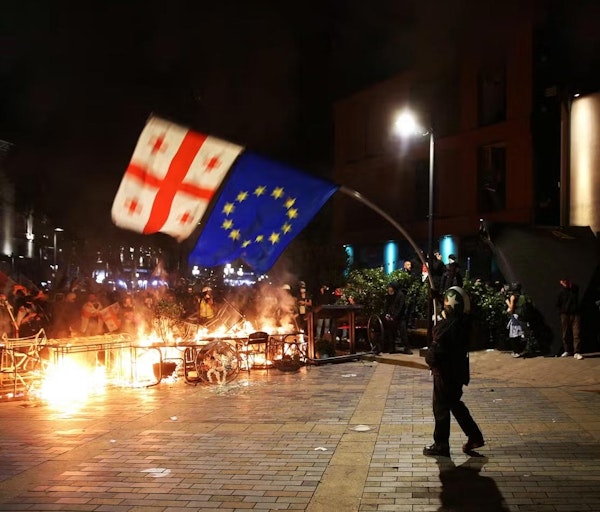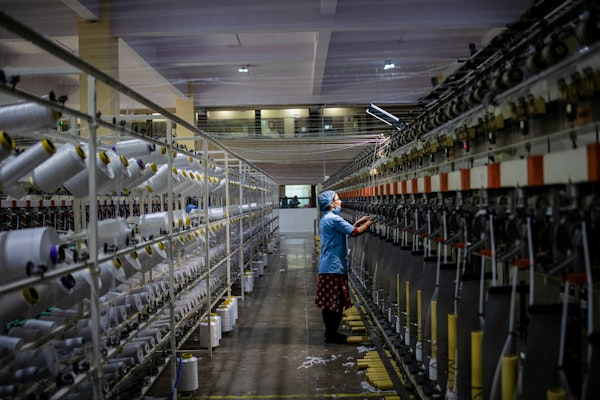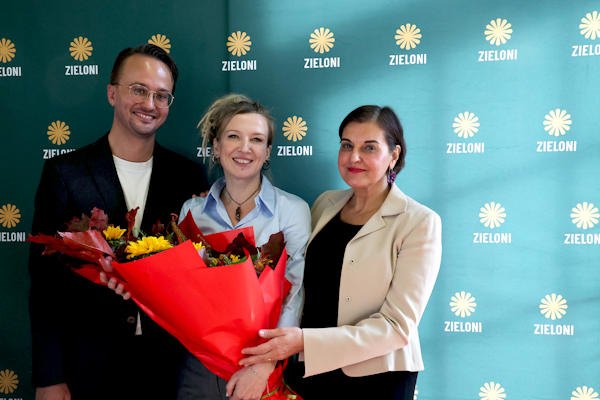"We are in favour of the enlargement of the European Union. The European Commission must also do more to help the candidate countries build up their democratic capacities" European Green co-chairs Mélanie Vogel and Thomas Waitz said on Wednesday, reacting to the European Commission’s recommendation on EU enlargement. “And don’t forget the Western Balkans: it is our historical responsibility, as well as a geopolitical strategic necessity, to support integration, democratisation and reconciliation in the Western Balkans”.
The European Commission recommends opening formal negotiations on Ukraine’s accession. Waitz and Vogel comment: “The people of Ukraine are heroically defending the future of a free Ukraine. The EU institutions should move swiftly towards the integration of Ukraine into the European Union”. The Commission also opens membership negotiations with Moldova. Already in June 2022, the European Green Party and its member parties adopted a resolution in favour of the enlargement process towards Ukraine, Moldova and Georgia, at the EGP Council in Riga.
The European Commission recommends granting candidate status to Georgia if and when it fulfils the remaining conditions. The EGP co-chairs comment: “The Georgian government continues to make it increasingly difficult for the country to fulfil its aspirations to join the EU. As European Greens, we stand in unwavering solidarity with civil society and political organisations, such as the Greens, who are fighting for a more democratic and a European future for Georgia”.
When it comes to the six aspiring Western Balkans countries, the European Commission has recommended different courses of action . The European Green Party is in favour of the accession of Albania, Bosnia and Herzegovina, Kosovo, Montenegro, North Macedonia and Serbia. This position of the European Greens was adopted in a resolution at the EGP Council at the end of 2022.
"We must not forget about the Western Balkans. The fragile peace in the region, which is threatened by Russian influence, must be protected. Candidate countries must meet the standards of the rule of law, human rights and democracy in order to start talks. But once the European Union has made promises or raised hopes, the European institutions must be able to deliver. False promises lead to disappointment and turn people away from European support," say Vogel and Waitz: “It is our historical responsibility, as well as a geopolitical strategic necessity, to support integration, democratisation and reconciliation in the Western Balkans. This should also become an important priority for European foreign policy”.
The European Commission recommends opening accession negotiations with Bosnia and Herzegovina, once the necessary degree of compliance is achieved. “It is clear that the secessionist rhetoric and legal actions of Republika Srpska President Milorad Dodik are the biggest obstacle to the start of negotiations”, Waitz and Vogel comment.
Regarding Serbia, the European message must be clear towards the Serbian government: you can’t sit in two chairs at the same time, and to become part of the EU, you will have to distance yourself from Putin’s Russia,” Thomas Waitz and Mélanie Vogel conclude.




